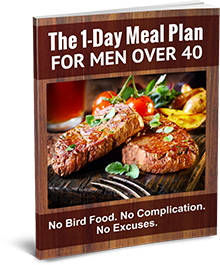Hydration goals aren't always cut-and-dried, but everyone can agree that the importance of good hydration is vital to staying healthy.
Are you drinking enough water to meet your body's daily demands?
Answering this question means you can make changes to your hydration goals when needed to stay healthy, keep energy levels high, and reduce your chance of medical problems.
The bottom line when it comes to hydration goals is that everyone has different daily fluid needs.
In fact, your unique fluid requirements vary from day to day based on your active you are, how much you sweat, and how warm the air temperature is.
A general hydration goal for men is 16 cups daily, which includes the fluids you ingest from water, other beverages, and foods that contain water (fruits, vegetables, soups, protein shakes, juices, dairy foods, etc.).
Learning how to set — and achieve — proper hydration goals is a must to stay well and look and feel your best!
Learn about the many benefits of drinking more water!
Benefits of Water for Hydration
Water is one of the best hydration options for men, and for good reasons.
Water helps meet your body's fluid requirements without extra calories, added sugar, or potentially harmful artificial ingredients.
Drinking plenty of water can:
- Increase your energy levels
- Improve athletic performance
- Aid in healthy weight management
- Promote healthier skin
- Decrease your risk of dehydration
- Reduce your risk of weight gain and medical problems
- Improve your overall quality of life
Drinking enough water, especially drinking water before meals, reduces your risk of unplanned weight gain.
It can even aid in weight loss if you struggle to move toward an ideal body weight.
Good hydration is vital to maintaining healthy skin, other body structures, and most body functions.
Proper hydration helps you focus, as it maximizes cognitive functioning.
Unfortunately, studies show that about 75% of the United States population is chronically dehydrated.
Join our 6-Week Program...
You'll Gain Health for Life!In just 6-weeks on our FOUNDATIONS Program, you'll transform your health and body, for the rest of your life!
General Hydration Goals for Men
While everyone has different hydration goals, it's important to know about the general guidelines to give you an idea of your body's unique hydration needs.
The National Academies of Science, Engineering, and Medicine recommends that men drink about 16 cups of fluids daily.
While this guideline is for total fluids, not just water, water is one of the best options for meeting your daily hydration goals.
Your personalized hydration needs vary based on your size, muscle-to-fat ratio, and the amount of water you lose daily through sweating.
If you're an endurance athlete who sweats a lot, you likely need much more water and other fluids daily than someone who is sedentary.
A 16-cup per day fluid goal for men is simply a guideline.
Fluid Requirements During Workouts
Drinking enough fluids during exercise is important, especially when you work out in warm temperatures.
The American Council on Exercise (ACE) offers the following guidelines for staying hydrated during workouts:
- Drink 17-20 ounces of fluids 2-3 hours before workouts
- Consume 8 ounces of fluid 20-30 minutes prior to exercise
- Drink 7-10 ounces of fluids every 10-20 minutes during workouts
- Consume 8 ounces of fluids 30 minutes after exercise
- Drink 16-24 ounces of fluid for every pound of body weight you lose during workouts
As a frame of reference, 8 fluid ounces equals 1 cup of fluids.
Your personalized hydration goals vary, but you can use the ACE guidelines as a reference.
When you lose weight during a workout, chances are you're dehydrated.
Rehydration after intense exercise is crucial.
Do what you can to increase your water weight after becoming dehydrated.
If you're an endurance athlete who exercises for more than an hour, choose a drink containing sugar or electrolytes, such as a sports drink, in addition to water to maximize athletic performance and reduce the risk of electrolyte imbalance.
Doing so replaces the electrolytes you've lost while sweating during intense workouts and gives you a boost of energy to continue with endurance exercise.
Am I Drinking Enough Fluids?
There are several ways to determine if you're drinking enough fluids to meet your body's daily needs and prevent dehydration.
Common signs of dehydration, or consuming too little fluids, include:
- Extreme thirst
- Dry mouth
- Infrequent urination
- Fatigue
- Dizziness
- Headache
- Discolored urine
- Confusion
A good way to know if you're drinking enough water and other fluids is to look at your urine.
If you're properly hydrated, your pee will be light yellow or clear in color.
Bright yellow or dark-colored urine often indicates dehydration.
Ways To Increase Fluid Intake
There are numerous ways to increase your intake of water, other fluids, and water-rich foods.
Always Keep a Water Bottle with You
Make sure to drink enough water throughout the day by always keeping a water bottle with you.
Have water with you at work, while working out, and when driving in your car.
Always have access to clean, filtered drinking water.
Keep a Fluids Diary
Record the number of cups of water and other healthy fluids you consume daily in a fluid diary.
That way, you know for sure whether or not you're meeting daily hydration goals.
Increase Water-Rich Foods and Drinks
Choose water-rich foods over dry foods when possible.
Consume soups or salads as an appetizer, fresh fruits instead of dried fruits, dairy foods, plant milk, or other foods high in water content.
Drink protein shakes, vegetable juices, and other nutrient-dense fluids in addition to water.
Look at Your Urine
Look at your urine to find out if you're drinking enough water and other fluids.
If your urine is dark yellow in color, immediately drink a glass of water.
Set Hydration Goals and Stick to Them
Develop a plan to meet your daily hydration goals and stick to the plan as best you can.
For example, you might drink a cup of water every hour all throughout the day and consume additional fluids when you're in hot temperatures or sweating a lot during workouts.
If your hourly hydration goals aren't sufficient to keep your body hydrated, adjust your fluid plan as needed.
Healthy Foods and Drinks that Hydrate
Water isn't the only thing that keeps your body hydrated, though it's one of the healthiest options.
Additional nutritious foods and drinks that contain water or other fluids and help you meet daily hydration goals include:
- 100% fruit juice
- Vegetable juice
- Milk
- Plant milk
- Kefir
- Greek yogurt
- Cottage cheese
- Fresh fruits
- Fresh vegetables
- Protein shakes
- Soups
- Unsweetened coconut water
- Coffee
- Tea
- Low-sugar protein shakes
- Water with fruits chunks or cucumber slices
Eat fresh strawberries, watermelon, cantaloupe, honeydew melon, oranges, cucumbers, tomatoes, bell peppers, and other fresh fruits and vegetables.
Steer clear of sugar-sweetened and artificially sweetened drinks when possible, such as sodas, diet sodas, other diet drinks, and sugar-sweetened sports drinks.
Avoid canned fruits sweetened with syrup.
Here’s A Free Weight Loss Meal Plan For Busy Men 40+
Discover exactly what to eat for breakfast, lunch, and dinner to lose belly fat & feel energized 24/7 without hard dieting...
How Much Water is Too Much?
Too much of a good thing can be problematic, even when it comes to hydrating your body with water.
Water intoxication occurs when you drink too much water by accident, which dilutes the sodium levels in your blood and can cause cell swelling or increased pressure inside of your skull.
Symptoms of water intoxication include:
- Confusion
- Nausea
- Vomiting
- Headaches
- Muscle weakness
- Cramping
- Higher blood pressure
- Double vision
- Difficulty breathing
- Disorientation
- Seizures
- Brain swelling
- Coma
In severe cases, drinking too much water is fatal, as excess water and diluted sodium in your blood make fluids move toward certain cells, causing them to swell.
Population groups with the greatest risk of water intoxication include endurance athletes, soldiers in training, and people with schizophrenia.
Studies show that drinking more than 1 liter per hour can be harmful to your health, as your kidneys remove about 20-28 liters of water daily.
One liter of fluids equals just over 4 cups.
The good news is that water intoxication is rare. Dehydration is much more common than water toxicity.
Here’s a FREE Meal Plan & Workout For Busy Men 40+
We’ll show you exactly what to eat & how to exercise to reignite your metabolism in your 40’s, 50’s & 60’s.
Can I Lose Weight by Drinking Water?
Increasing your water intake and meeting hydration goals is an effective weight-reduction strategy.
For example, studies show that drinking 2 cups of water 30 minutes before meals makes it easier to eat fewer calories during meals and shed pounds.
Drinking water can make you feel full after eating fewer calories, which is one reason it's such an effective weight-loss strategy.
If you struggle to drink as much water as your body needs for effective weight loss, consider flavoring your water with chunks of fruit, mint, cucumber slices, or drinking the water ice cold.
Erin Coleman is a registered and licensed dietitian with over 15 years of freelance writing experience. She graduated with her Bachelor of Science degree in nutritional science from the University of Wisconsin-Madison, and completed her dietetic internship at Viterbo University in La Crosse, Wisconsin. Prior to beginning her career in medical content writing, Erin worked as Health Educator for the University of Wisconsin-Madison Department of Internal Medicine. Her published work appears on hundreds of health and fitness websites, and she’s currently working on publishing her first book! Erin is a wife, and a Mom to two beautiful children.Erin Coleman, B.S. Nutritional Science, R.D., L.D.
Writer, Fit Father Project
The FOUNDATIONS Program is created by Dr. Anthony Balduzzi for Men 40+ who want Lifelong Health. In just 6-Weeks following FOUNDATIONS, you'll experience: FOUNDATIONS has transformed 60,000 lives! Are you ready to experience true lasting health & results?Join our 6-Week Doctor Designed Health Program. You'll Gain Foundational Health for the Rest of Life.
*Please know that weight loss results and health changes/improvements vary from individual to individual; you may not achieve similar results. Always consult with your doctor before making health decisions. This is not medical advice – simply very well-researched info on hydration goals.


















